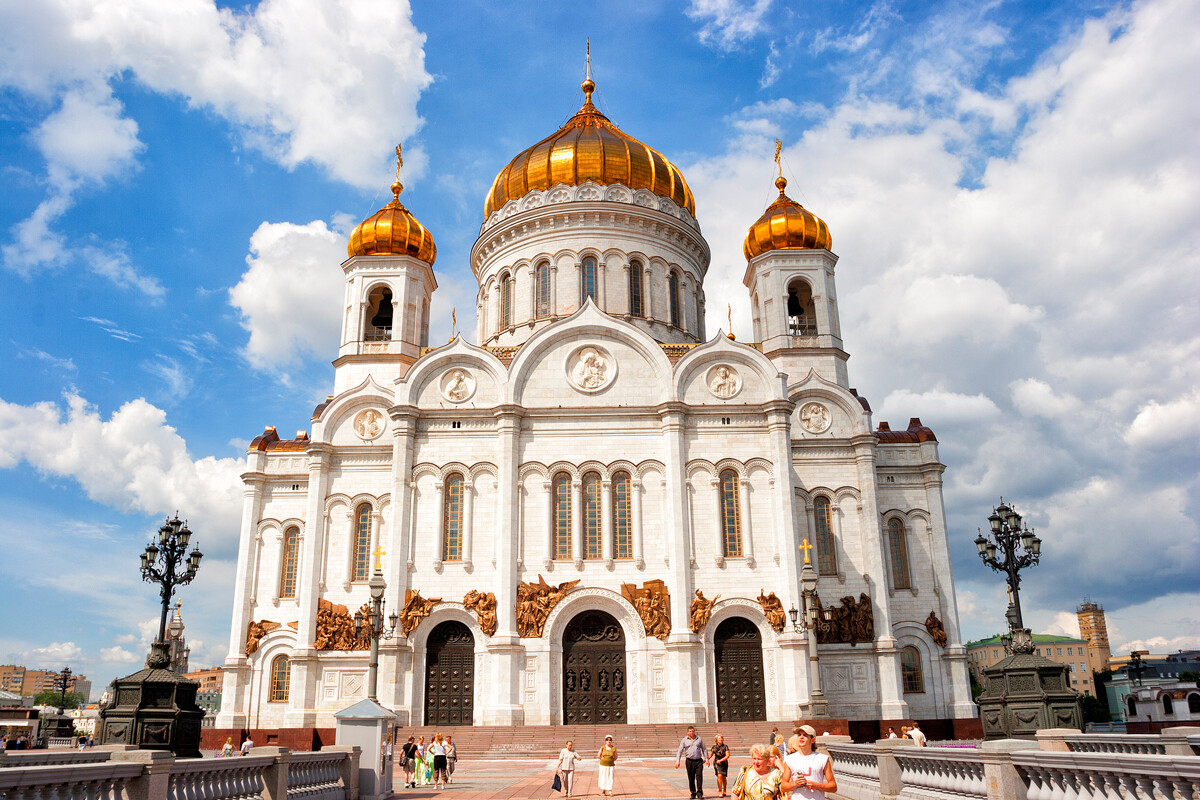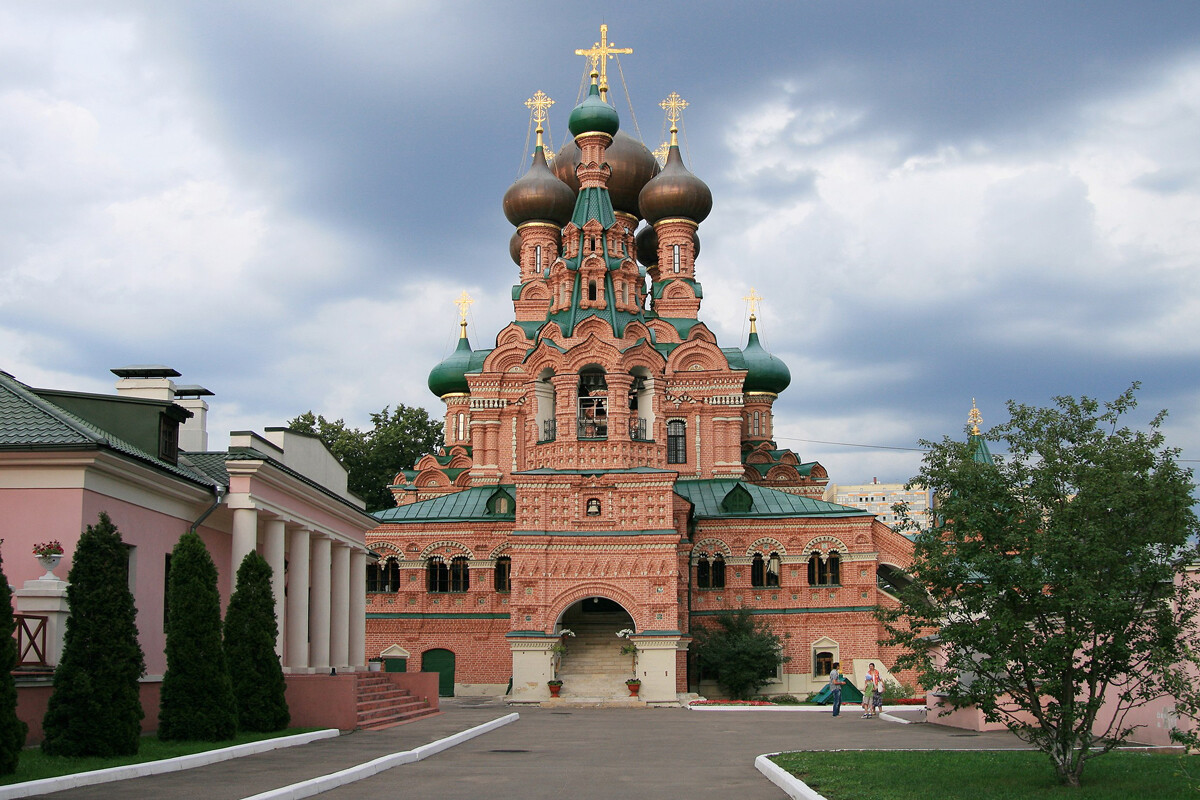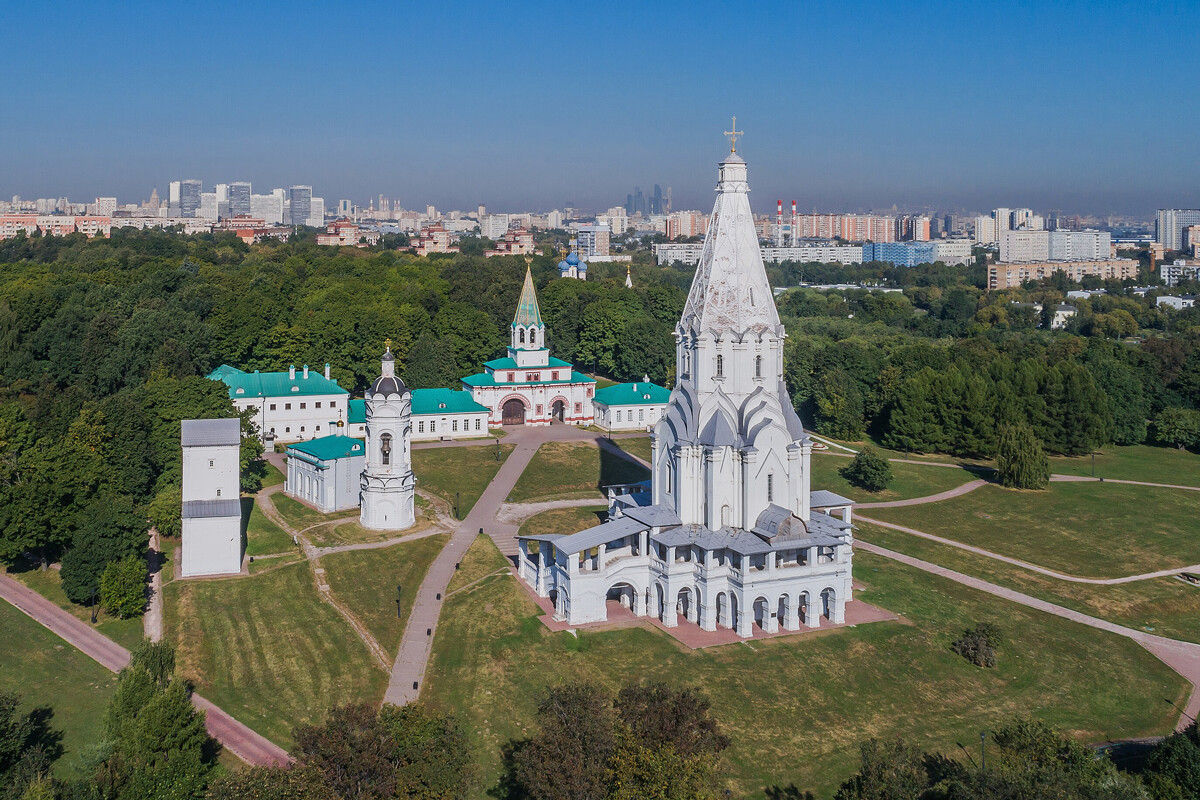

Let's start with the most important type of Russian Orthodox house of worship - a 'sobor'. This is the name given to the main church of a monastery, convent or city. In the latter case, it will be situated in the center. Services in a 'sobor' are conducted by the highest-ranking clergy - the patriarch, metropolitan or archbishop. If the ‘cathedra’ (seat or throne) of the senior presiding church dignitary - i.e. head of the eparchy (diocese) - is located there, such a church will be called a ‘kafedralny sobor'. For example, the Church of Christ the Savior on Volkhonka Street in Moscow is considered as such: Patriarch of Moscow and All Russia Kirill is the head of the capital's eparchy. There are also cathedrals in the Moscow Kremlin: For example, before 1917, the Dormition Cathedral was Russia's main ‘kafedralny sobor'.

A 'khram', which can be large or very modest in size, usually contains several domes and side chapels with altars. Services in a 'khram' are conducted several times a day. The Church ('khram') of the Life-Giving Trinity in Ostankino, for instance, has four side-chapels: dedicated to the Trinity, the Venerable Alexander Svirsky, the Tikhvin Icon of the Mother of God and St. Nicholas.

A 'tserkov' - or "house of God" - is a place where believers gather for services. A 'khram' where services are conducted once a day is also called a 'tserkov'. Just like a 'khram', a 'tserkov' can be located in any part of town. How can you tell it's a 'tserkov' and not a 'khram'? Check to see if there is just one altar: If there is, you weren't mistaken and it's a 'tserkov'.
Dear readers,
Our website and social media accounts are under threat of being restricted or banned, due to the current circumstances. So, to keep up with our latest content, simply do the following:
If using any of Russia Beyond's content, partly or in full, always provide an active hyperlink to the original material.
Subscribe
to our newsletter!
Get the week's best stories straight to your inbox